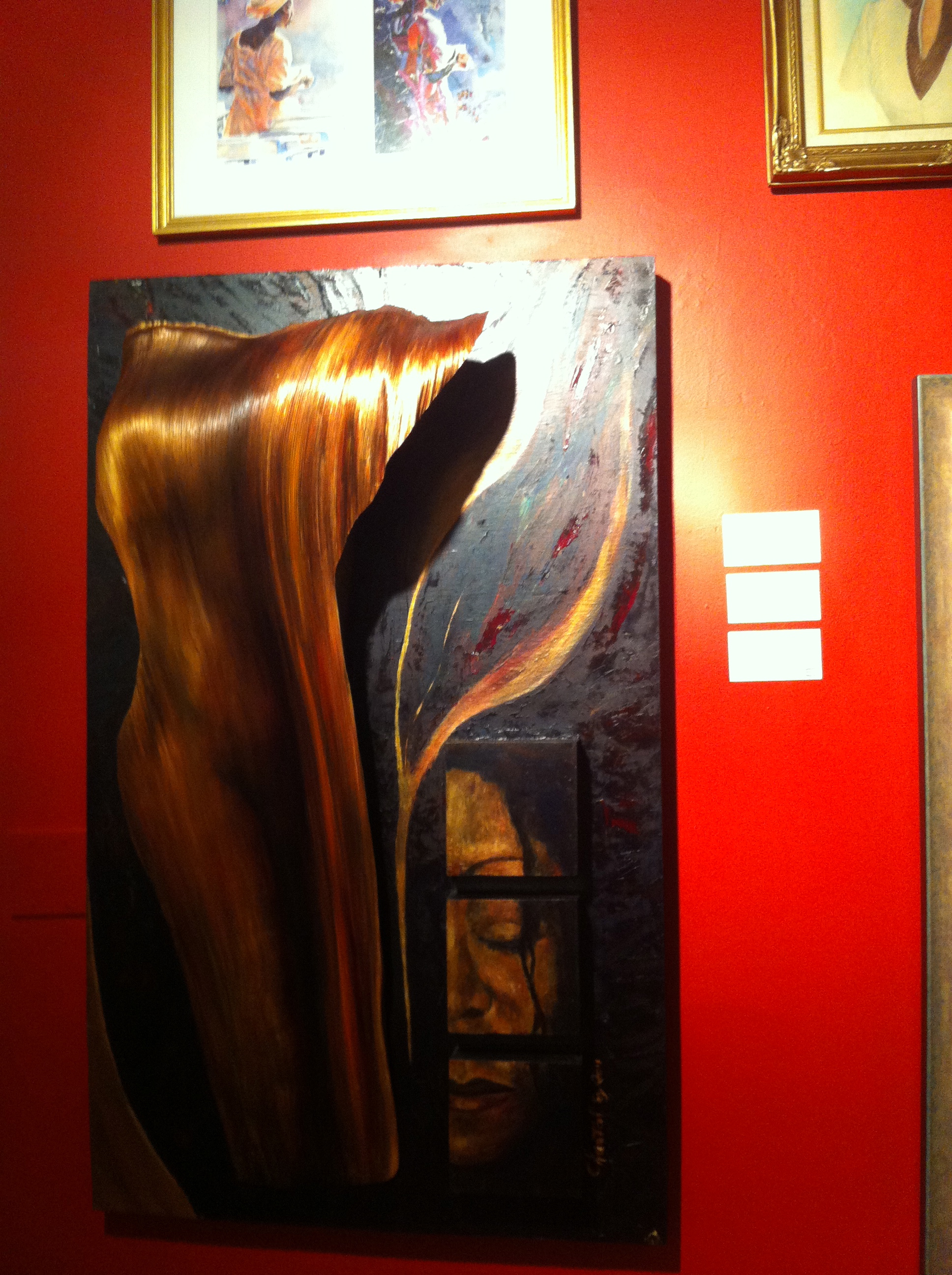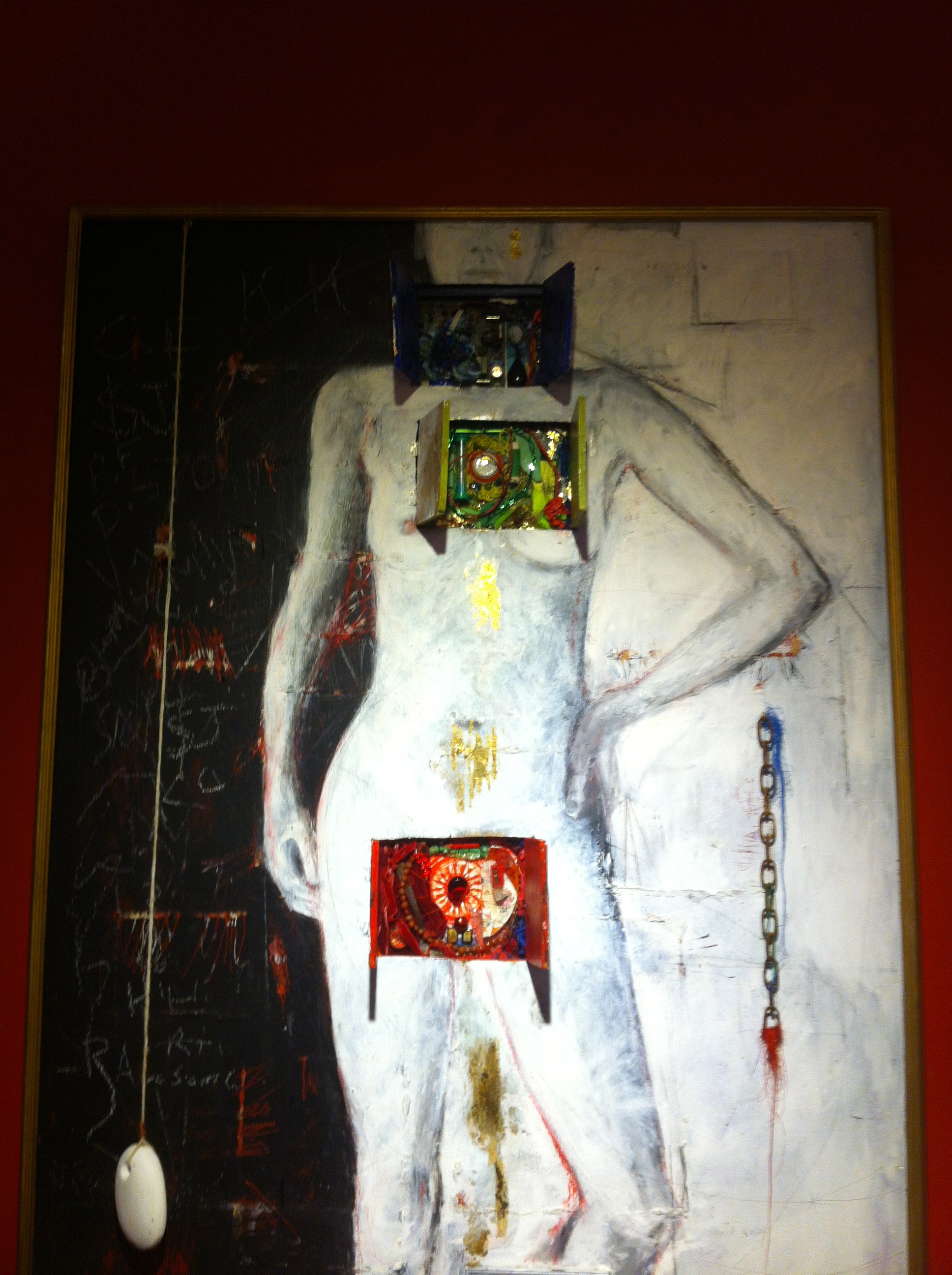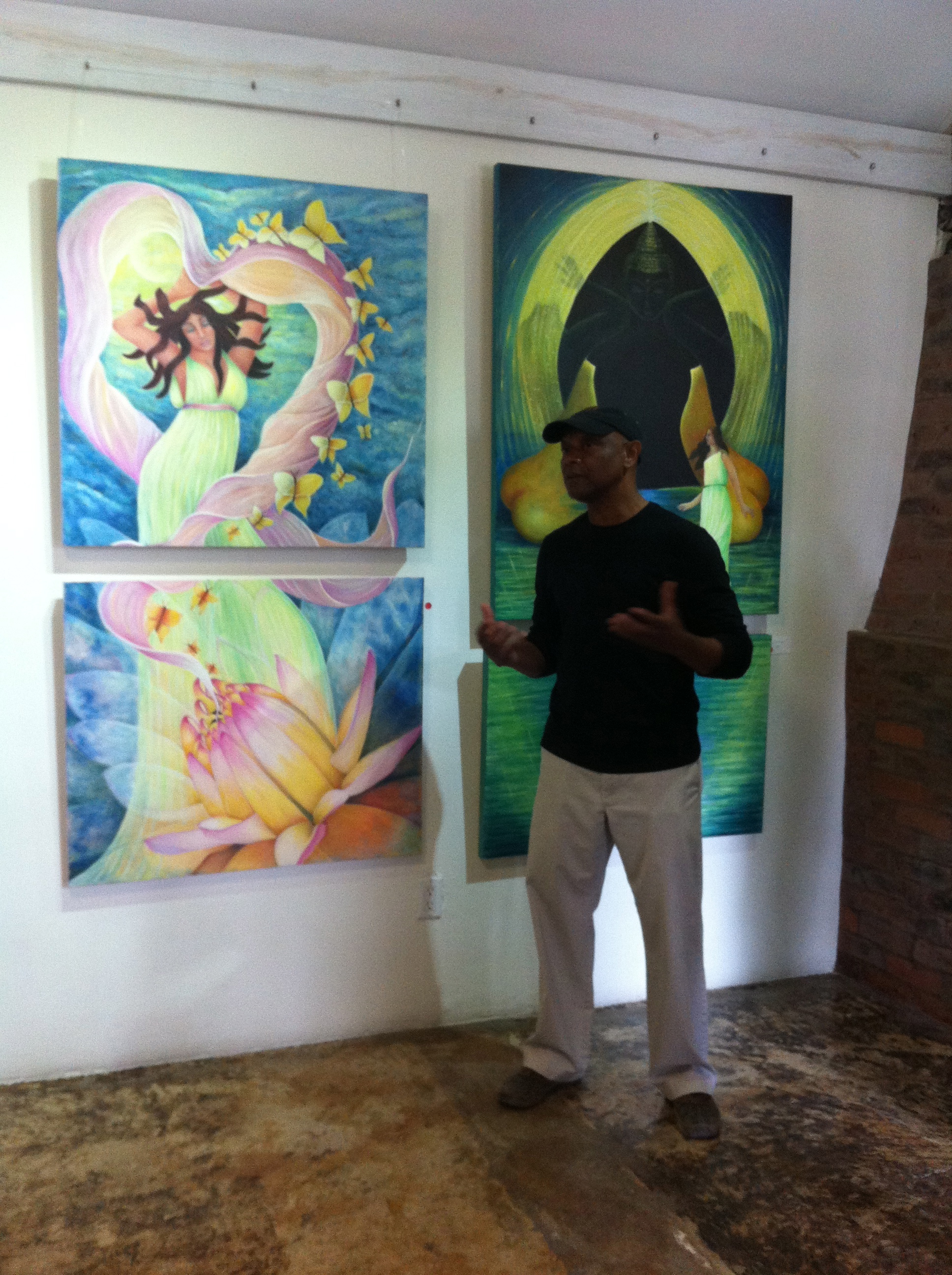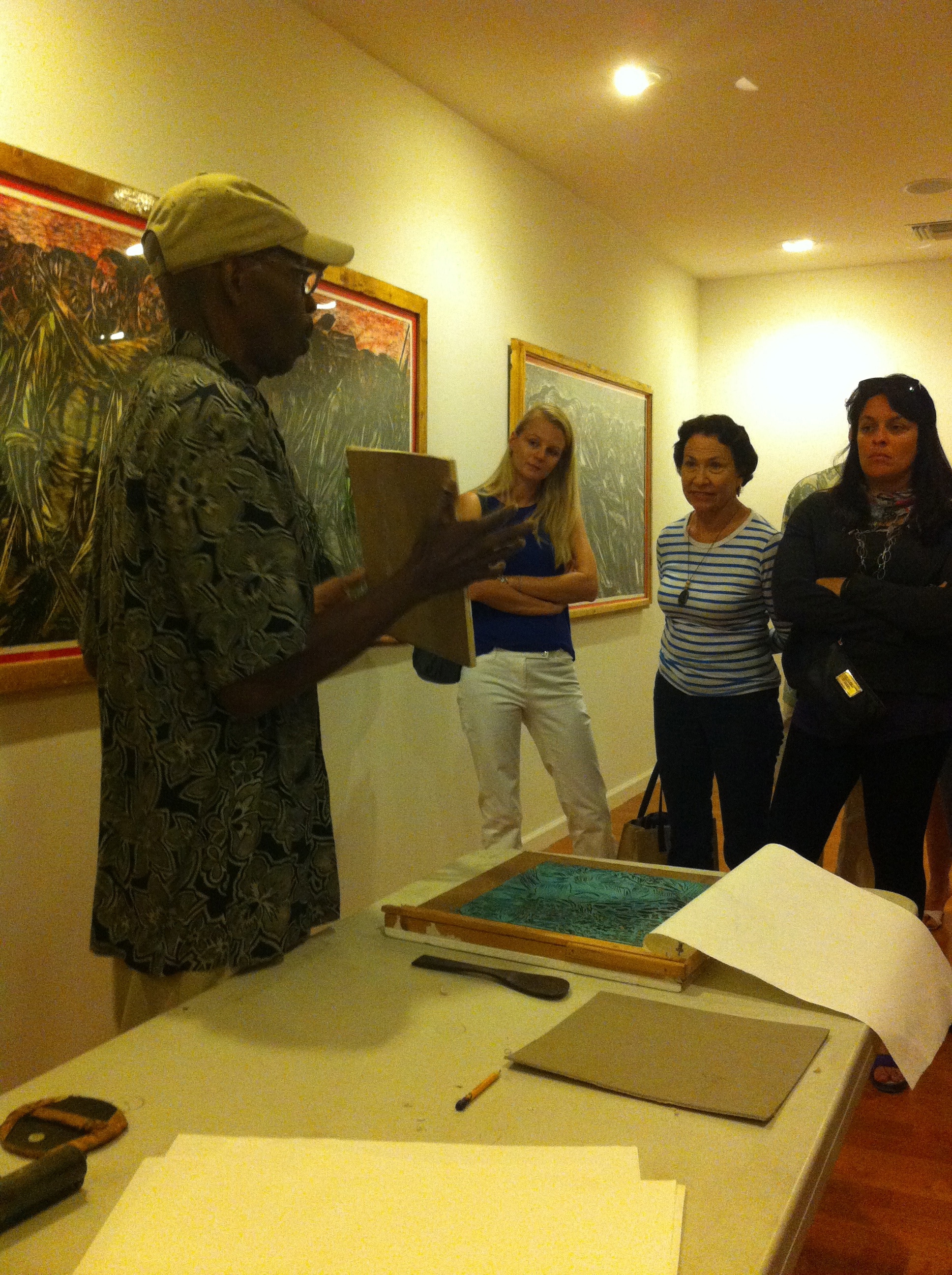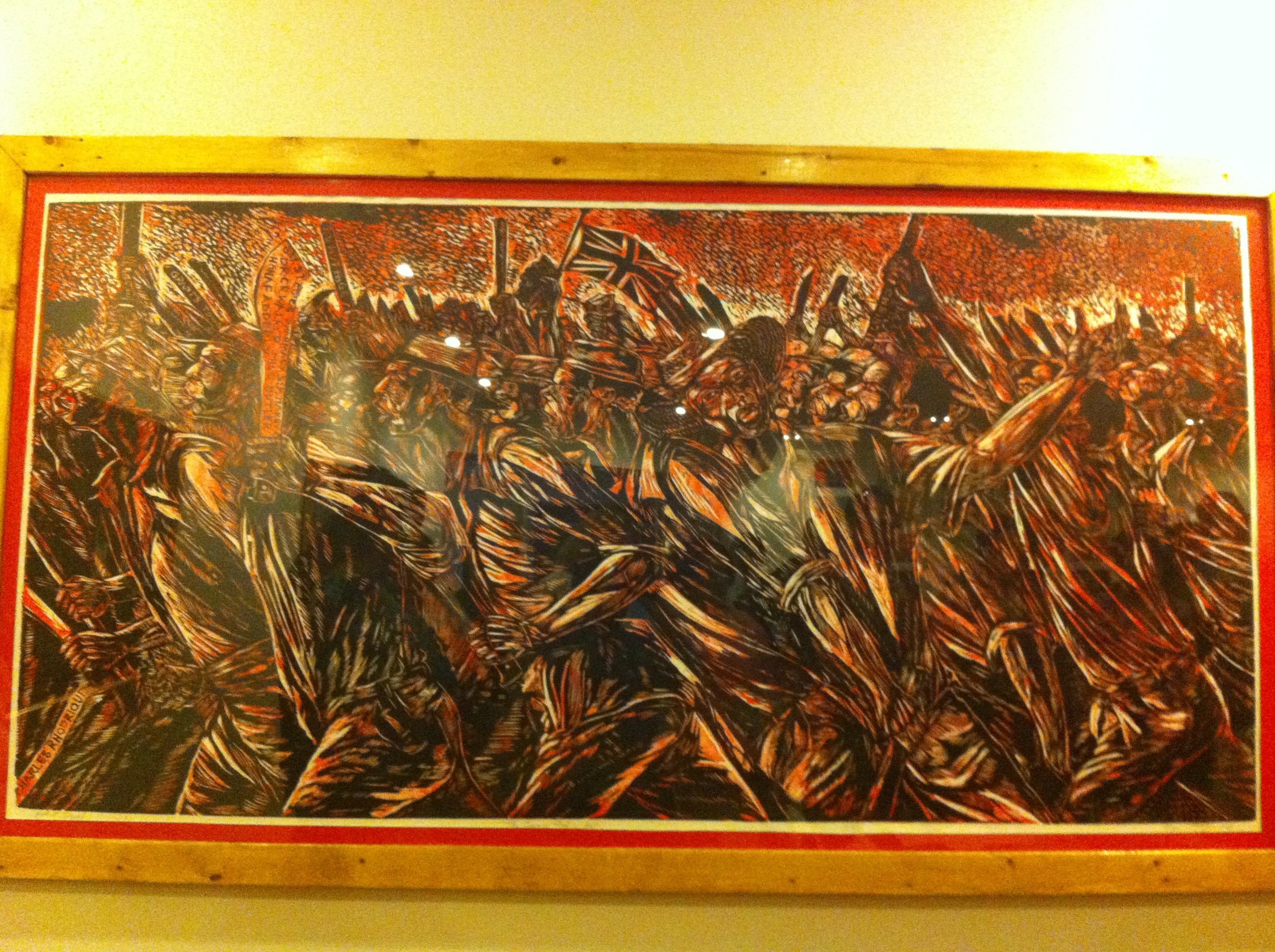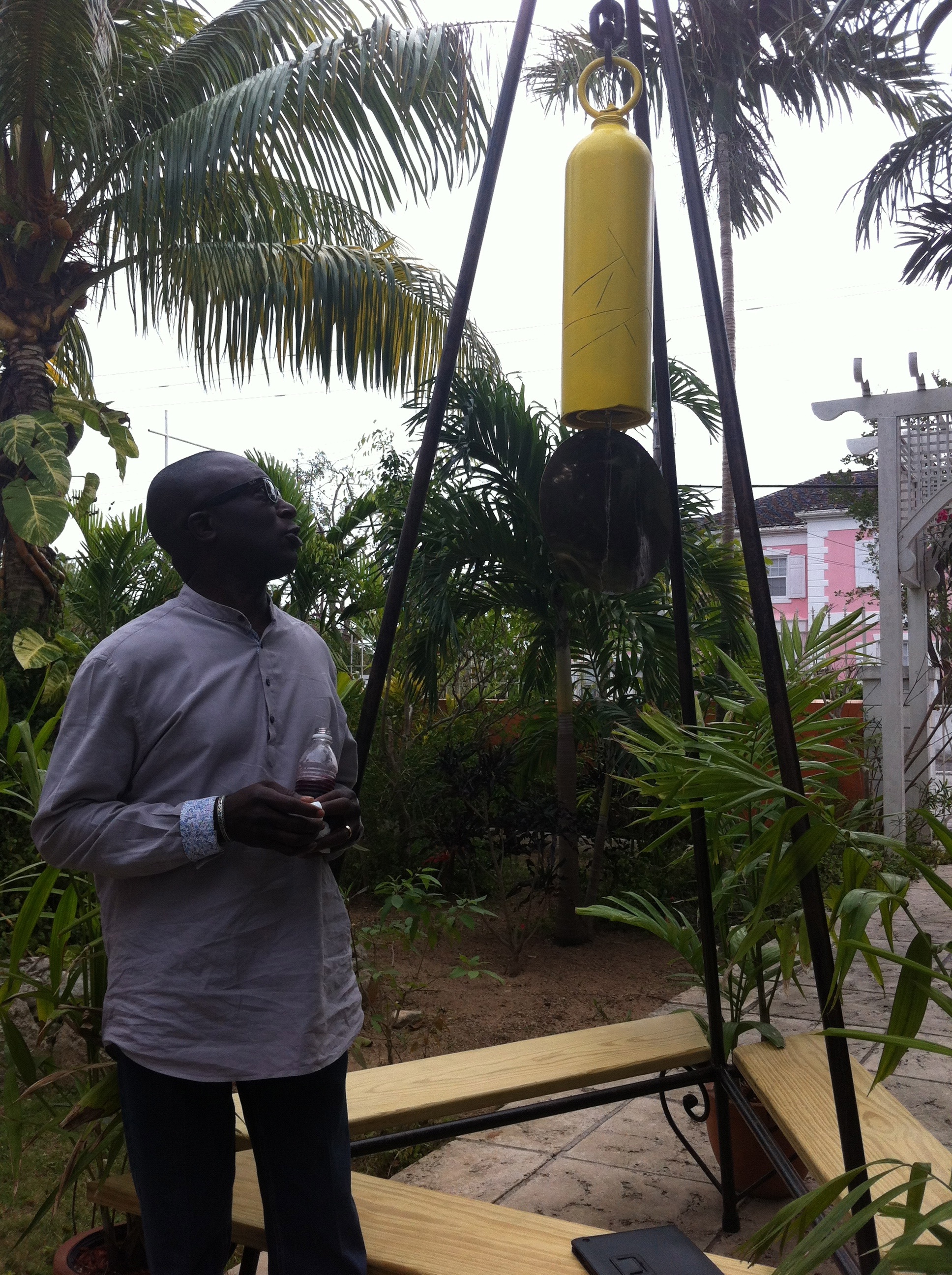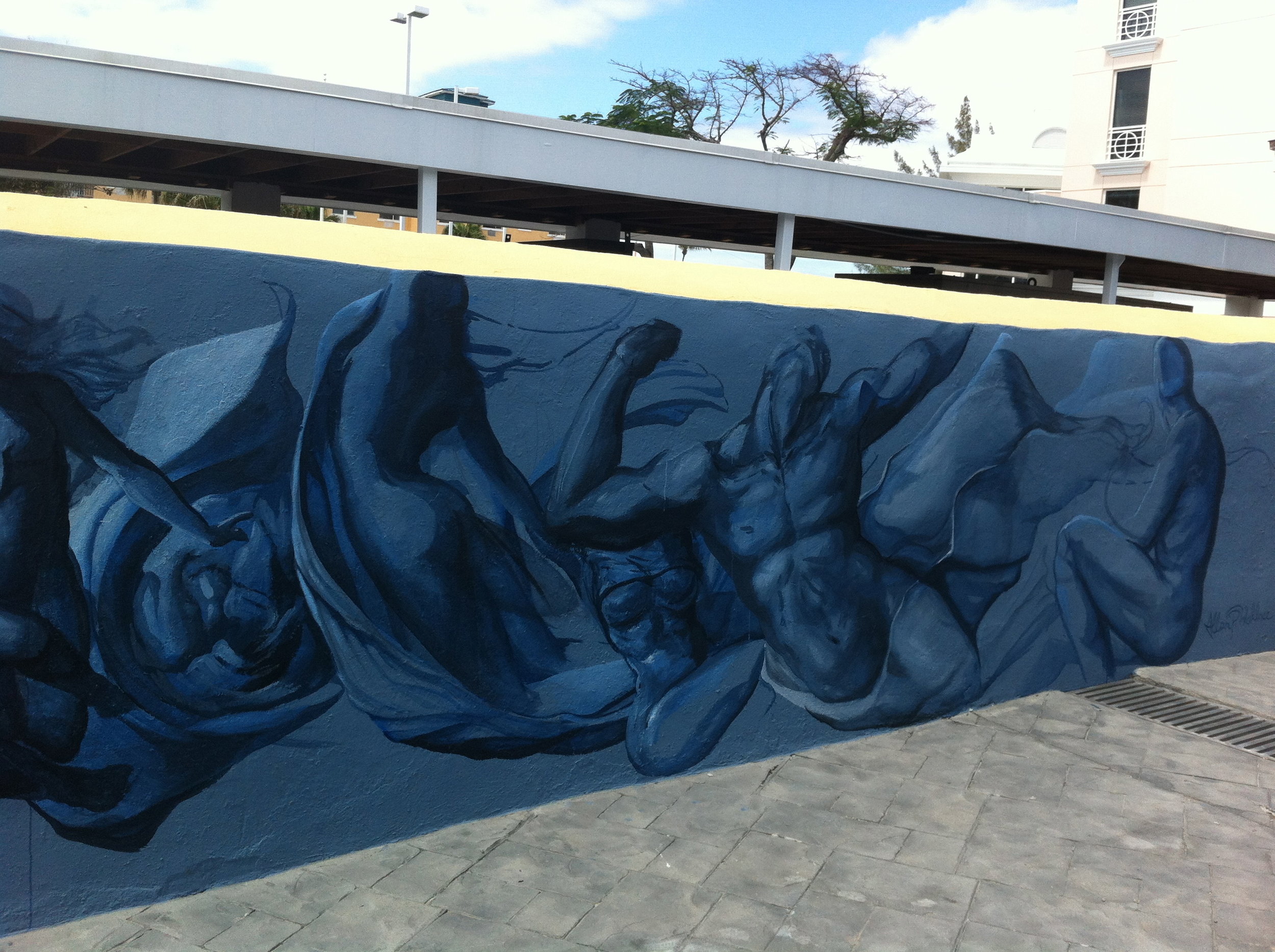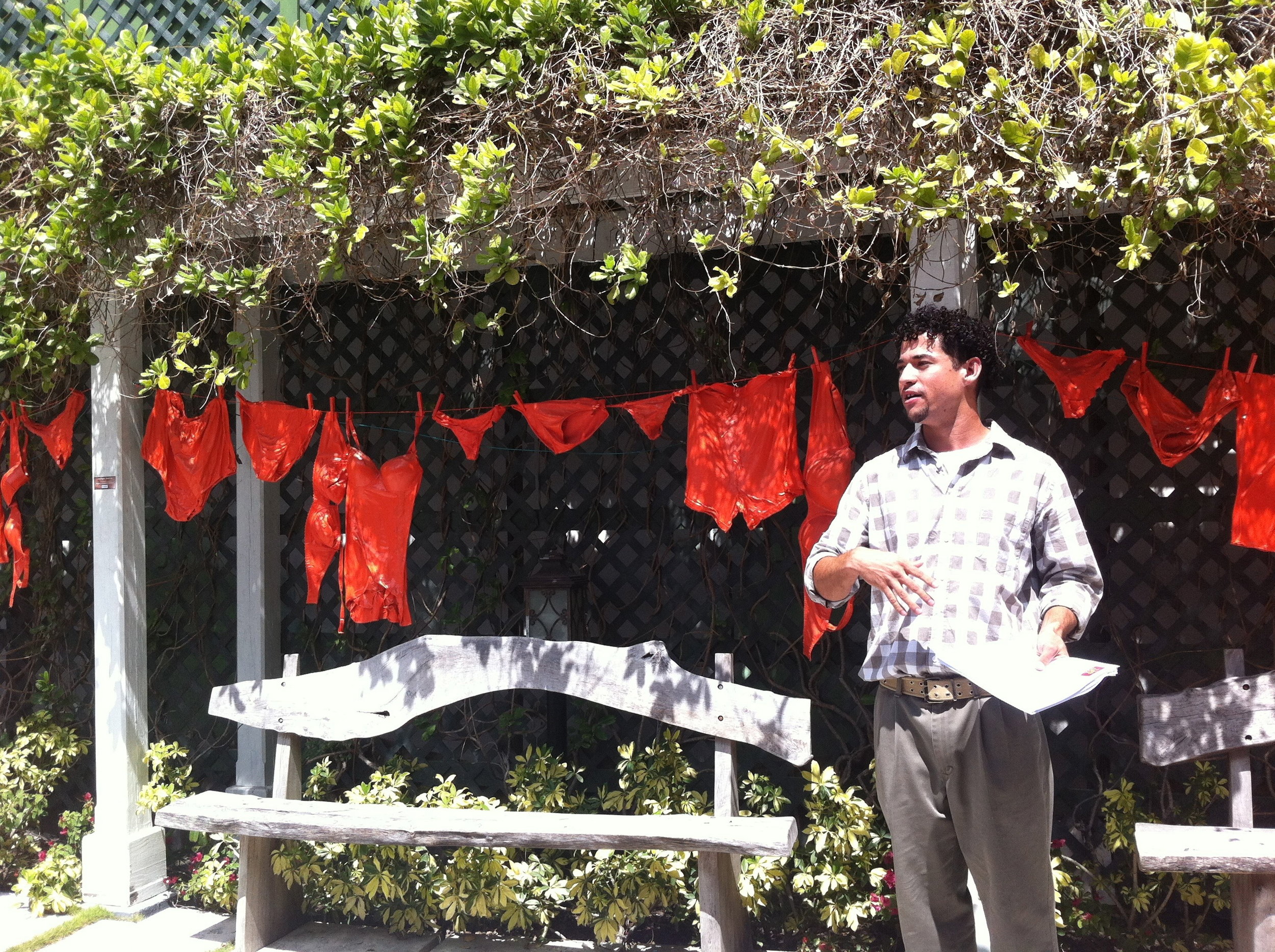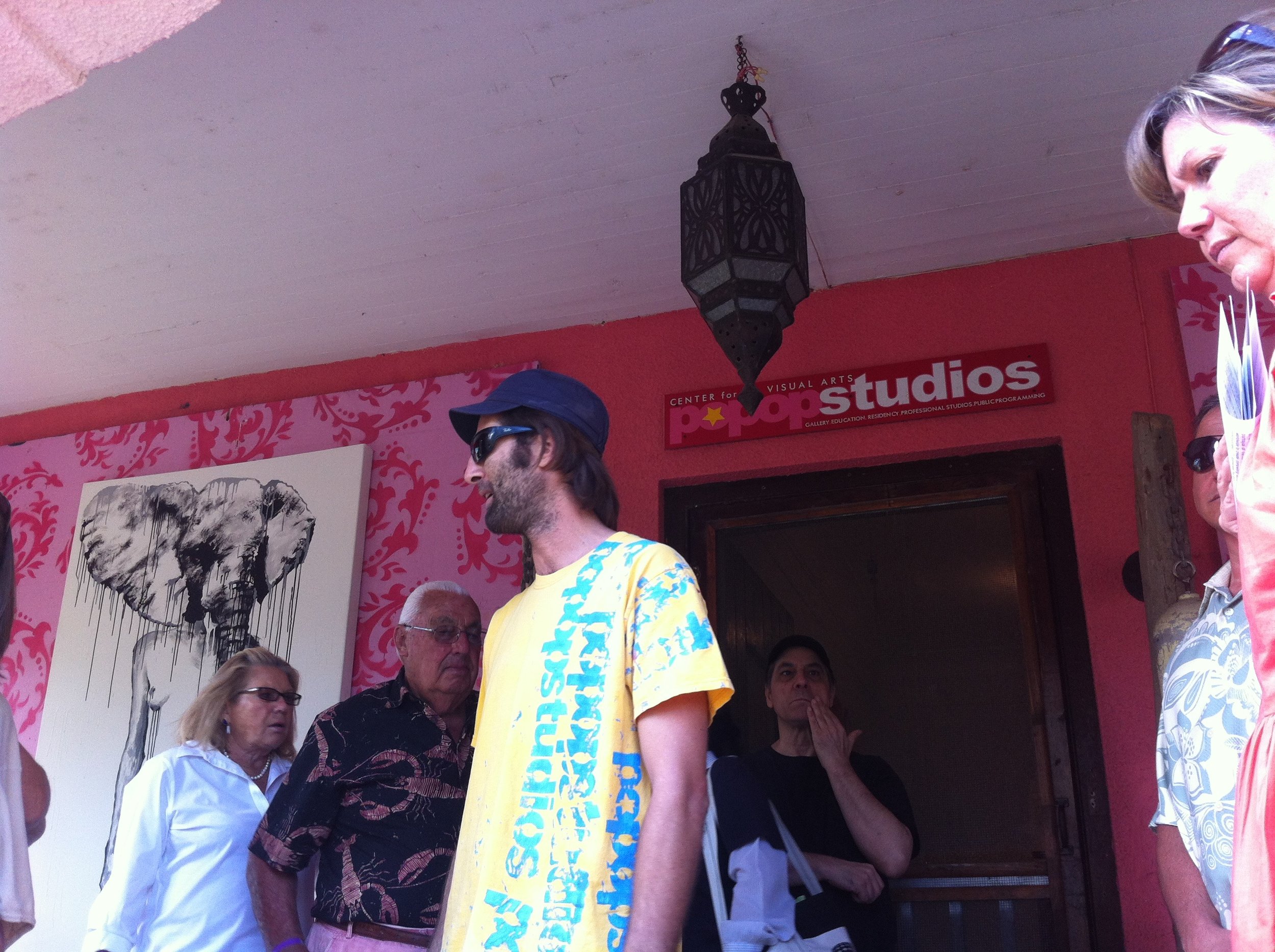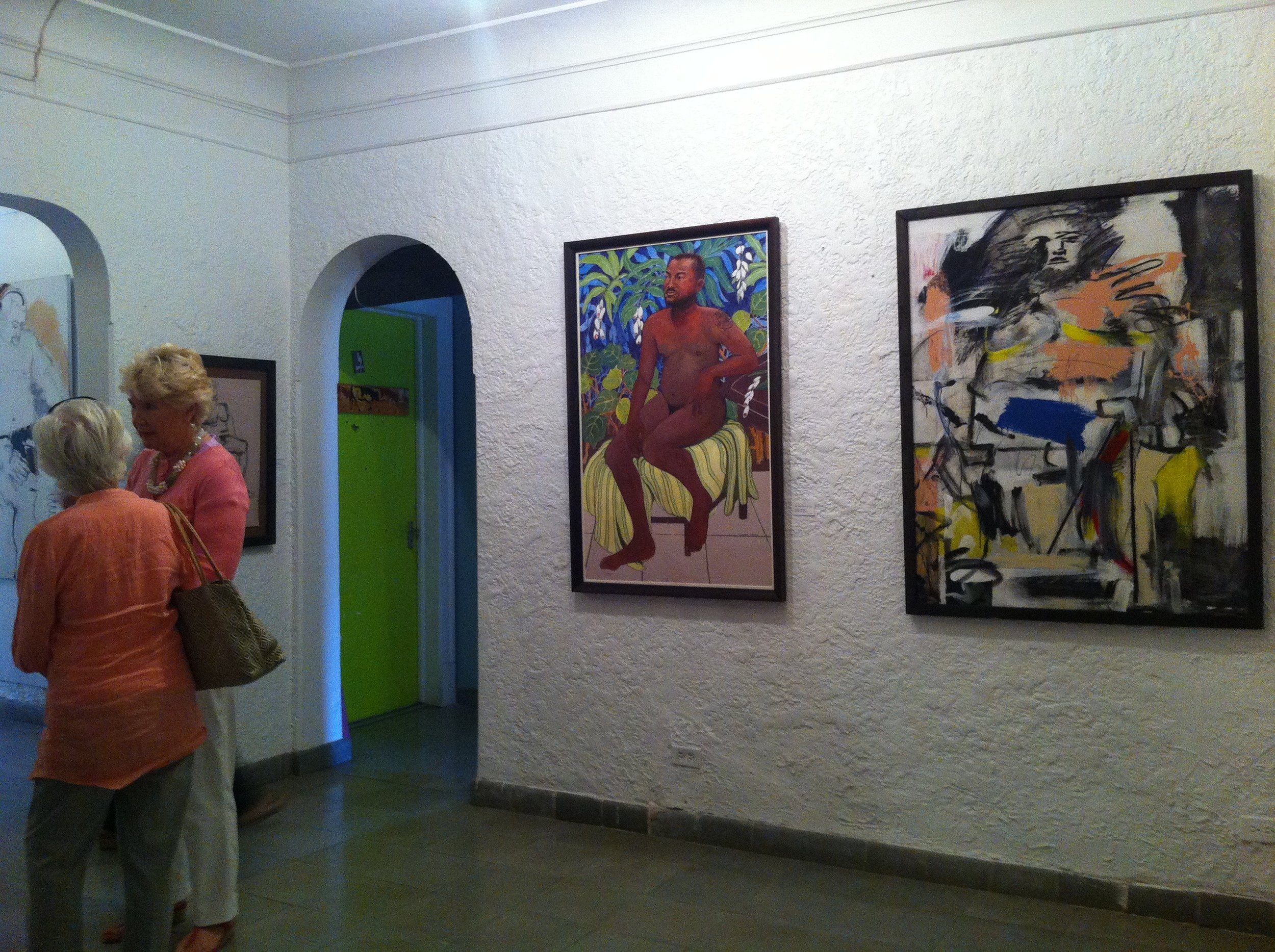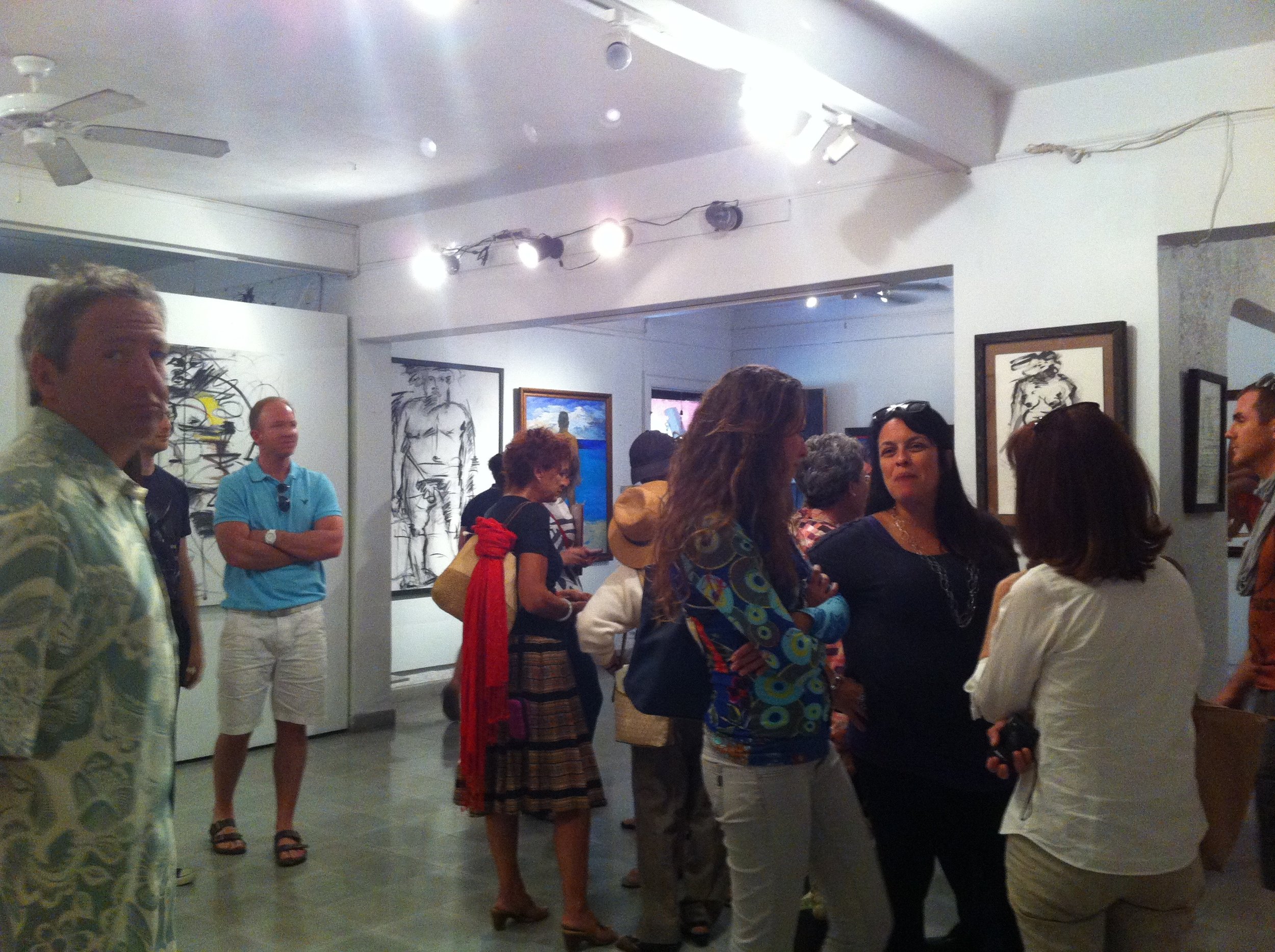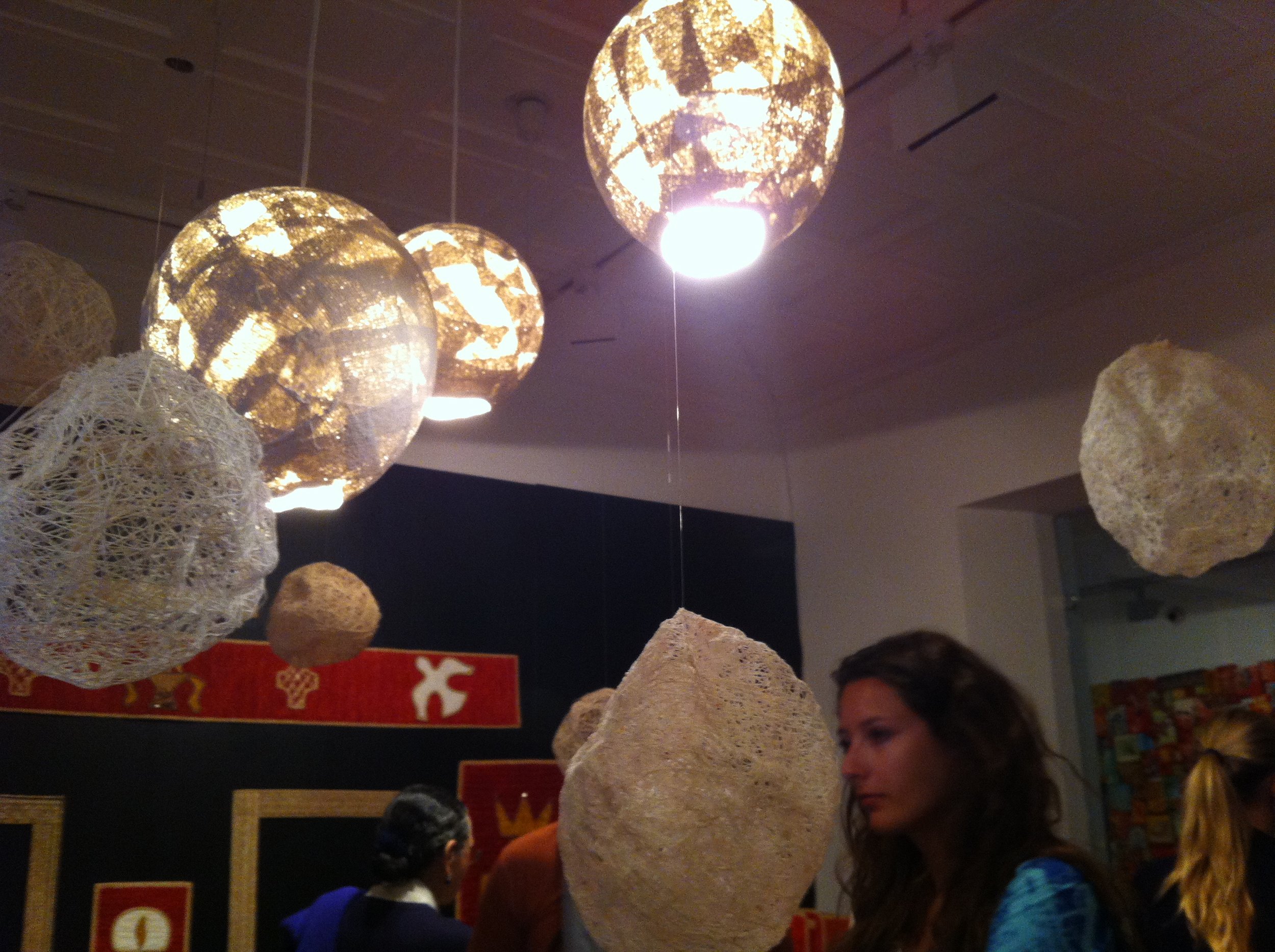By guest blogger Erin Knowles
Edward Said states: “Much as I have no wish to hurt anyone’s feelings, my first obligation has not been to be nice but to be true to my perhaps peculiar memories, experiences and feelings”.
With that said: The teaching and learning experience is often characterized by boredom, disinterest and apathy. It is not uncommon to hear the tasteless remarks of fellow students highlighting the drudgery and monotony of classes.
When I was asked to present on some aspect of transition from College to University, a plethora of ideas flooded my mind but I deemed the state of pedagogy one of marked importance, both to the progression of students and by extension the progression of the nation.
Paulo Freire presented two theories in education that require explication, analyses and juxtaposition to determine the extent to which one of his theories can contribute progressively to the transition of the College of the Bahamas to the University of The Bahamas.
Freire being one of the most influential pedagogical theorist, focuses on the necessity of a literate population. He posits that to be considered truly human, people must enter into a state which he calls critical consciousness. This state of critical awareness allows people to see themselves as subjects in the world instead of objects.
Opposite to that we have what I theorize exists here, not in totality but limited to particular schools, at the College of the Bahamas. An oppressive institution based on the Banking concept. This according to Freire is characterized by:
the teacher teaches and the students are taught;
the teacher knows everything and the students know nothing;
the teacher thinks and the students are thought about;
the teacher talks and the students listen meekly;
the teacher disciplines and the students are disciplined;
the teacher chooses and enforces his (her) choice, and the students comply;
the teacher acts and the students have the illusion of action through the action of the teacher;
the teacher chooses the program content, and the students (who were not consulted) adapt to it;
the teachers confuses the authority of knowledge with his or her own professional authority, which he or she set in the opposition to the freedom of the students;
the teacher is the Subject of the learning process while the pupils are mere objects.
(Freire, 56)
Keeping in mind these characteristics, in Cesaire’s Discourse on Colonialism he specifically outlined between ‘colonizer and colonized there is room only for forced labor, intimidation, taxation, self complacency, brainless elites, degraded masses and many more’ added to that Cesaire explicitly states “relations of domination and submission turn the colonizer into a classroom monitor and the colonized into an instrument of production (42.)
Based on the banking concept it is easy to see how teacher occupy the role of oppressor and student the oppressed.
The banking concept in education allows the oppressors to control the actions, thoughts, and realities of people. It provides a facet by which the elite can dominate and promote a “culture of silence”. Students are NOT allowed to question and when they do it complies with the limited ‘content’ the lecture allows.It is aptly titled the banking concept simply put according to Freire’s Pedagogy of the Oppressed: Education becomes an act of depositing, in which the students are the depositories and the teacher is the depositor. Instead of communicating, the teacher issues communiques and makes deposits which the students patiently receive, memorize, and repeat" (58).
If for some reason, you still are undecided on the purpose of the foundation that I laid lets bring it home.
Culture is not a static set of customs, religious beliefs, social attitudes, forms of address and attire, and foods; rather, it is a dynamic inclusive process of transformation and change laden with conflicts to resolve and choices to be made both individually and as a community therefore contributing to a nation.
The banking concept not only limits the span of individuation within students, it ensures an institution produces clones. If a school in no way challenges its students to synthesize, analyze, interrogate, I fail to see how that school can produce critical thinkers, educated citizens or nation builders.
Bear with me as I digress: For five years I’ve entered a variety of courses where the standard is mediocrity. I remember walking into numerous seminar sessions where the lecturer walked in, opened a folder, taught, closed the folder and left; 50 minute deposit – TRANSACTION COMPLETE.
Every exam, discussion, presentation required me not to challenge, think, explicate, hypothesize, not to interrogate, instead it was the main goal to cover enough of the chapter or enough information provided by the teacher so as to rehash the exact same information on an exam or a presentation in order to get an A.
It is no secret we inhabit a post colonial space, how are we as future generations expected to recreate, develop, change, agitate dominant hegemony, if the very foundation that should engender the desire to do so, continually and consistently, deposit enough asinine information to ensure we remain oppressed?
You know the funny thing is Mr. Alfred Sears our council chairman said in a meeting on Tuesday, that Politicians say the most stupid things and are not questioned, not by the lawyers, not by doctors, not by anyone. And I realize that we have been so conditioned through this concept in education, as Cesaire states, the elites are brainless and the masses degraded.
Tompkins categorizes Freire as an exponent of "literacy for social change" because Freire argues that unjust social conditions are the cause of illiteracy and that the purpose of adult basic education is to enable learners to participate actively in liberating themselves from the conditions that oppress them.
How?
The second Freirian theory is that of Critical consciousness that result from problem posing, it is the action of the oppressed by which they take control of their situation and become critically aware of social, political, and economic oppression. It is the power to change an existing reality into a new and improved reality.
Freire emphasizes that critical action is not only being aware of the reproducing process of the status quo, but also taking action to develop a more equitable society. Nevertheless, it is important for critical educators to seek possibilities for both teachers and students to take action which effectively contributes to the development of a more equal and tolerant society.
With problem posing education, “no one teaches another, nor is anyone self-taught (Freire, 67). He also emphasized that the students already have wisdom and invaluable experiences, which might not be articulated or shared in the classroom. Now in the banking concept, it is completely different, students are essentially the epitome of a blank slate at the teacher’s mercy. Students can already be viewed as depositors as well, the teacher’s crucial roles are to learn from the students, welcome and appreciate their perspectives, and engage in the dialogical process. Not knock every other perspective because its not your own.In addition, being a learner along with the students, the teacher shows how knowledge is constructed and shared by the group through dialogue. In this way, learners become the creators rather than the recipients of knowledge. They became subjects as opposed to objects of their world and learned to recognize hegemonic forms of control for what they are and together find ways to resist them. The Freirian approach to education contributes to a reconceptualization of literacy as socially constructed rather than skill-based and initiated “problem-posing” as a model for enabling learners to become critically conscious active agents in shaping their own realities.
Whether the content is academic or not, consciousness-raising through critical issues requires a deep level of engagement both from students and the teacher. It is crucial that the content be immediate and meaningful to students so that they become aware of both the reproductive nature and the possibility of resistance to problematic content. As Pennycook cautions, it also requires teachers’ investment at the level of desire. Developing critical consciousness doesn’t mean “a rational, intellectual explanation of what is wrong” (340). Instead, it requires of a teacher a deeper level of engagement with beliefs, experiences, identities, and desires both of the teacher and the student.
Therefore we would NOT have the issue of English Education majors, yes, English Ed majors, blatantly stating they DO NOT like to read or write….because now they would be able to make some connection between the information learned/read to lived experience resulting in some self gratification and critical analysis, making reading meaningful.
They talk about using teaching as a vehicle for social change. We tell ourselves that we need to teach our students to think critically so that they can detect the manipulations of advertising, analyze the fallacious rhetoric of politicians, expose the ideology, resist the stereotypes of class, race, and gender; or, depending on where you're coming from, hold the line against secular humanism and stop canon-busting before it goes too far.
According to Fanon and The counterinsurgency of education “The pursuit of critical education through anticolonial perspectives requires that learning promotes and sustains new, creative and original ideas about what constitutes schooling and education.” For this to take place, critical educators will have to ground themselves in a firm knowledge of the importance of educational transformation that links schooling and education to the broader socio-economic transformation of society for the benefit of all learners. Education should be seen as a social good in itself that should not necessarily be dominated by the needs of a particular sector of society.
Those truly committed to liberation must reject the banking concept in its entirety, adopting instead a concept of students as conscious beings, and consciousness as critical consciousness intent upon the world. They must abandon the educational goal of deposit-making and replace it with the posing of the problems of individuals in their relations with the world. Then and only then will we have a transition not only from College to University but from student to critical thinker, from a stagnant nation to a progressive one.
Works Cited
Cesaire, Aime. Discourse on Colonialism. New York: Monthly Review Press, 2000
Freire, Paulo. Pedagogy of the Oppressed. Trans. Myra Bergman Ramos. New York: Continuum, 1970
Freire, Paulo. Teachers as Cultural Workers, Westview Press, 1998
Freire, Paulo. and I. Shor . A Pedagogy for Liberation: Dialogues on Transforming Education, Bergin and Garvey Publishers, 1987.
Pennycook, A.. Introduction: Critical approaches to TESOL. TESOL Quarterly, 33(3) 1999: 329-348.
Said, Edward. Out of Place: A Memoir. Routledge. 1999
Tompkins, Jane. Pedagogy of the Distressed. College English 52.6 (October 1990): 653-60.
 4. Easter Sunday: RemembranceThe congregation’s young and old; few in between.A young man shakes my hand. His palm is hard—a worker’s palm—and hopeful for a wife.We honour woman-courage on this day:an empty tomb before Black Mary’s gaze.The women who aren’t girls all let themselves wear fatthat cloaks hard muscle, big hearts, brass voices.Their eyes are soft. Their green-eyed childreninhabit skins the shades of sand, of soil,of treebark, eggshell, cedar, earth, red loam.The braveheart women weep, and laugh.The rain falls with the Gospel.Christ is gone, the angel sings,and the silver rain falls down.
4. Easter Sunday: RemembranceThe congregation’s young and old; few in between.A young man shakes my hand. His palm is hard—a worker’s palm—and hopeful for a wife.We honour woman-courage on this day:an empty tomb before Black Mary’s gaze.The women who aren’t girls all let themselves wear fatthat cloaks hard muscle, big hearts, brass voices.Their eyes are soft. Their green-eyed childreninhabit skins the shades of sand, of soil,of treebark, eggshell, cedar, earth, red loam.The braveheart women weep, and laugh.The rain falls with the Gospel.Christ is gone, the angel sings,and the silver rain falls down. 5. Easter Monday: The North SideThis Atlantic: bluer than sacrament, brighter than pain,supplier of buoy-pots, candlewax, quilt-scraps, wrecks,ballastbricks for chimneystoves, old tyres for shoes,string and winecasks and even, maybe, bones—the things ships cast off when passing byor sinking down.The resurrection side.A blue hole swallows the unwary, offers upits perfect mystery. A thousand feet from shorea shelf dives undersea a thousand fathoms deep.The North Side ridge looks down. The water’s stripesbleed turquoise, blue, and indigo.You stare into the risen sun until you know.
5. Easter Monday: The North SideThis Atlantic: bluer than sacrament, brighter than pain,supplier of buoy-pots, candlewax, quilt-scraps, wrecks,ballastbricks for chimneystoves, old tyres for shoes,string and winecasks and even, maybe, bones—the things ships cast off when passing byor sinking down.The resurrection side.A blue hole swallows the unwary, offers upits perfect mystery. A thousand feet from shorea shelf dives undersea a thousand fathoms deep.The North Side ridge looks down. The water’s stripesbleed turquoise, blue, and indigo.You stare into the risen sun until you know.

